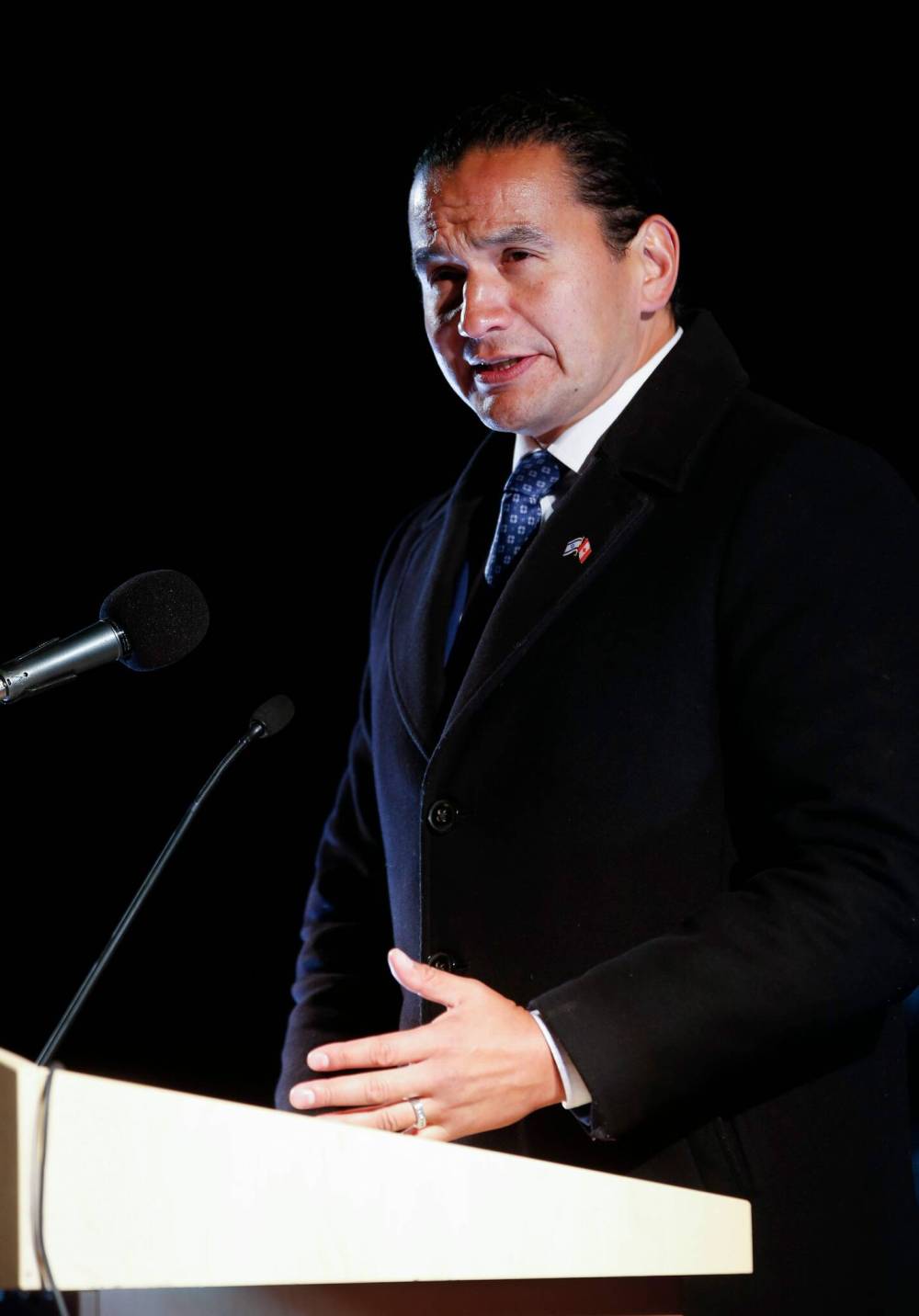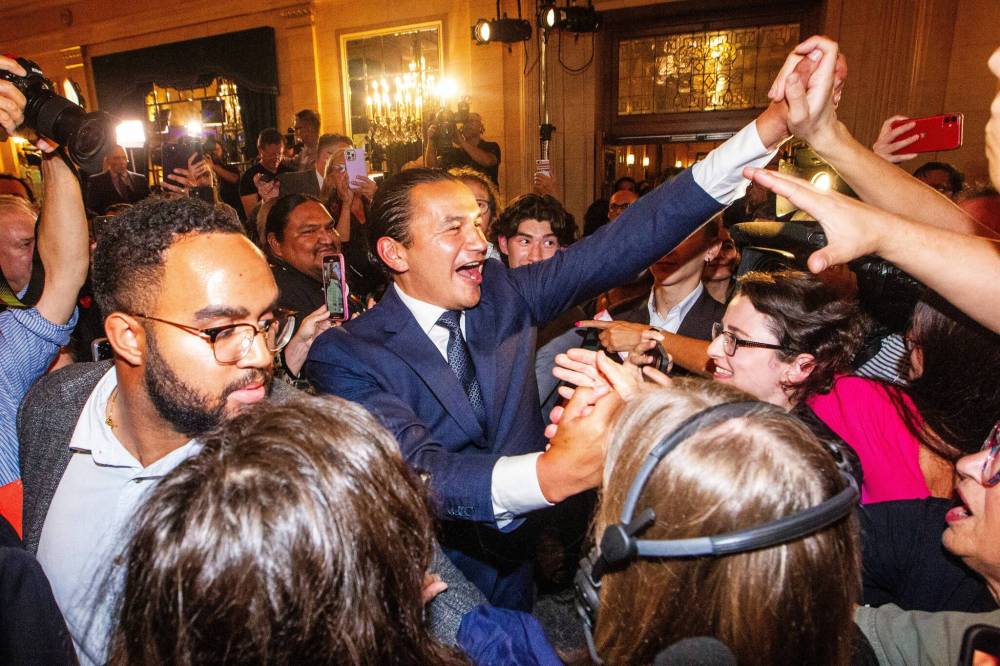The need to listen — and hear
Advertisement
Read this article for free:
or
Already have an account? Log in here »
To continue reading, please subscribe:
Monthly Digital Subscription
$0 for the first 4 weeks*
- Enjoy unlimited reading on winnipegfreepress.com
- Read the E-Edition, our digital replica newspaper
- Access News Break, our award-winning app
- Play interactive puzzles
*No charge for 4 weeks then price increases to the regular rate of $19.00 plus GST every four weeks. Offer available to new and qualified returning subscribers only. Cancel any time.
Monthly Digital Subscription
$4.75/week*
- Enjoy unlimited reading on winnipegfreepress.com
- Read the E-Edition, our digital replica newspaper
- Access News Break, our award-winning app
- Play interactive puzzles
*Billed as $19 plus GST every four weeks. Cancel any time.
To continue reading, please subscribe:
Add Free Press access to your Brandon Sun subscription for only an additional
$1 for the first 4 weeks*
*Your next subscription payment will increase by $1.00 and you will be charged $16.99 plus GST for four weeks. After four weeks, your payment will increase to $23.99 plus GST every four weeks.
Read unlimited articles for free today:
or
Already have an account? Log in here »
Hey there, time traveller!
This article was published 13/10/2023 (793 days ago), so information in it may no longer be current.
American writer and academic Ralph G. Nichols argued the most basic of human needs is to understand and be understood. “The best way to understand people,” he wrote, “is to listen to them.”
Seems like pretty basic, common-sense advice. But its application of late in Manitoba’s provincial politics might fairly be described as something between sporadic and seldom. Former premier Brian Pallister was reputedly not much for listening to advice from others, seeming to prefer instead an autocratic style of leadership that involved very little co-operation or compromise.
Heather Stefanson, upon wresting the Progressive Conservative leadership from Pallister’s faltering hands, promised a more open and collaborative approach than that employed by her predecessor. Her actions during her abbreviated turn in the premier’s chair, however, failed to measure up to her earlier words.

JOHN WOODS / WINNIPEG FREE PRESS
Wab Kinew talks to supporters of Israel gather at a rally at the Asper Jewish Community Campus in Winnipeg Tuesday, October 10, 2023.
On crucial matters such as health care, education, poverty and addiction, public safety and even taxes (and cuts thereto), the PC government seemed determined to hew to its ideological gameplan regardless of how loud or persistent the public’s objections became.
Even the PCs’ election campaign, which leaned hard into narrow and divisive issues and steered mostly clear of topics of genuine concern to the broader public, seemed intent on telling Manitobans what’s important rather than asking them.
In the end, Manitobans used their provincial-election votes to demonstrate in no uncertain terms that they were tired of not being listened to. A new government, led by a new premier, awaits.
New Democratic Party Leader Wab Kinew, who within weeks will be sworn in as the province’s 25th premier, has given early indications that he intends to seek and, one hopes, genuinely listen to advice, not just from his inner circle but from a wide swath of Manitobans whose experience and expertise could be invaluable in helping to set the government’s agenda.
The premier-designate last week introduced an 11-member transition advisory team that includes business and labour leaders, rural and northern representatives, Indigenous leaders, an Islamic authority, a medical professional and a seniors advocate with previous Crown corporation experience.
The perspectives embodied in panel’s makeup are, by clear design, diverse, but there does seem to be a shared sensibility within the transition team. Many, if not all, have at one time or another expressed frustration at the previous government’s unwillingess to engage in collaborative dialogue.
Former Morden mayor Brandon Burley — who resigned from his post in the southwest Manitoba town shortly before being introduced as part of the premier-designate’s transition team — accused the PC government of treating municipalities like children who need to be bottle-fed rather than partners in a multi-level approach to governing.

“I was able to see the lack of trust,” he said of his dealings with the province while serving as Morden’s mayor for the past five years. “The one level of government didn’t trust the other level of government to be competent enough to deliver on the programs that had to be delivered.”
Burley and the rest of the transition advisory team — and, for that matter, Manitobans in general — will find out in rather short order whether soon-to-be-premier Kinew intends to make productive use of their knowledge, or if the creation of this diverse panel is little more than a revealingly cynical exercise in political stage management.
The manner in which the team’s expertise is engaged will set the tone for the Kinew/NDP government. For the province’s sake, let’s hope the former outcome turns out to be true.
As the U.S. president of a century ago, Calvin Coolidge, once observed, “No man ever listened himself out of a job.”



